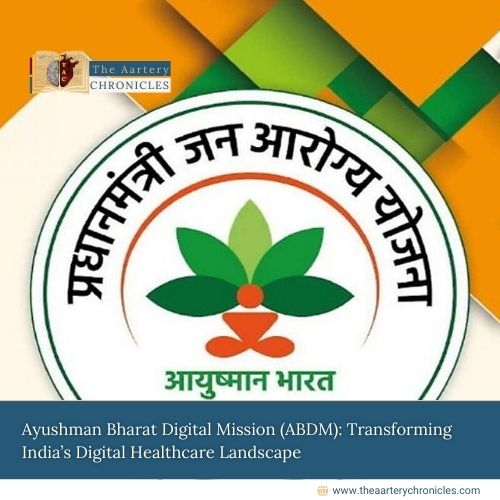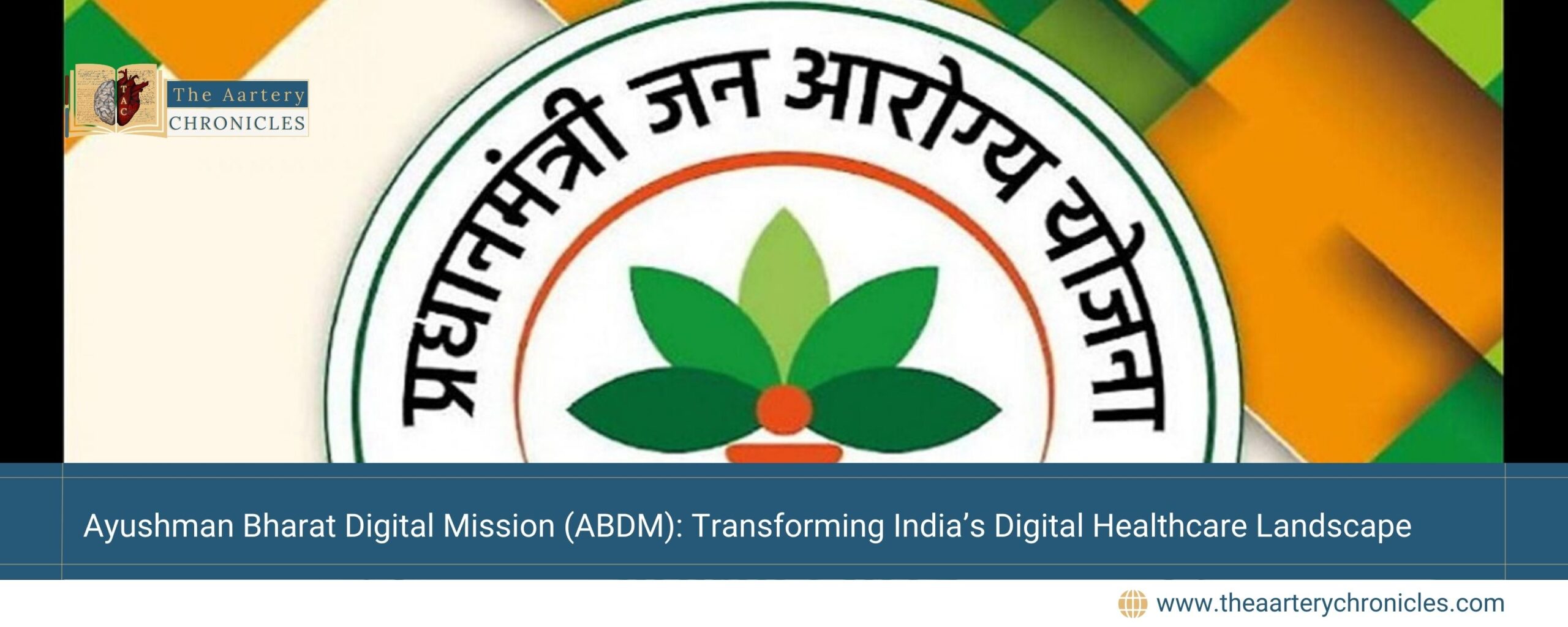

Ayushman Bharat Digital Mission (ABDM): Transforming India’s Digital Healthcare Landscape
Introduction
On September 27th, 2024, the Ayushman Bharat Digital Mission (ABDM) marked its third anniversary, celebrating three years of progress in reshaping India’s healthcare landscape through digital transformation. ABDM has pioneered an interoperable and inclusive digital healthcare system aimed at enhancing accessibility, efficiency, and transparency in healthcare services across the country. Over the past three years, the mission has achieved remarkable milestones, connecting patients, healthcare providers, and institutions through a seamless digital network and empowering millions with access to quality healthcare.
What is Ayushman Bharat Digital Mission?
Ayushman Bharat Digital Mission (ABDM) was launched in 2021 under the Ministry of Health and Family Welfare to establish a nationwide digital health ecosystem.
Objective: The primary objective of the mission is to
- Provide every citizen with a digital health ID
- Enabling hospitals, insurance companies, and individuals to access health records electronically as needed.
With ABDM, the government aims to
- Address critical gaps in the healthcare sector
- Streamline services
- Ultimately ensure equitable healthcare access for all
Main Features of Ayushman Bharat Digital Mission (ABDM)
The Ayushman Bharat Digital Mission operates through several integral components aimed at creating a fully digital healthcare ecosystem:
- Health ID: Each individual registered under ABDM receives a unique Health ID, similar to a digital passport for healthcare services. This ID allows individuals to store their medical history, prescriptions, diagnostic reports, and more in a centralized and accessible platform.
- Healthcare Professionals Registry (HPR): The HPR serves as a national database of verified healthcare providers, including doctors, nurses, and allied health professionals. This registry ensures patients can find reputable and verified professionals in their locality.
- Health Facility Registry (HFR): The HFR lists healthcare facilities such as hospitals, clinics, and diagnostic centers, providing a comprehensive directory for patients and professionals.
- Unified Health Interface (UHI): The Unified Health Interface (UHI) enables the discovery and provision of health services, thereby simplifying healthcare interactions and increasing service accessibility.
- Data Privacy and Security: Complying with the DPDP Act, 2023, the ABDM guarantees the protection, confidentiality, and secure sharing of patient health information.
- Transparency: ABDM provides individuals with access to both public and private healthcare services. This enforces compliance with guidelines and fosters transparency in pricing and accountability.
Key Initiatives of the Ayushman Bharat Digital Mission (ABDM)
The Ayushman Bharat Digital Mission (ABDM) has rolled out several initiatives aimed at streamlining healthcare processes, promoting digital health practices, and improving accessibility across the public and private healthcare sectors. Some of the key initiatives include:
- Scan and Share: A QR-code-based OPD registration service allows patients to scan the facility’s QR code to share their demographic details instantly, reducing wait times and minimizing data inaccuracies.
- Digital Health Incentive Scheme (DHIS): The DHIS offers incentives to hospitals, diagnostic labs, and digital health solution providers to encourage adoption of digital health practices and improve healthcare delivery through digitization.
- Microsites for Private Sector Adoption: Aimed at overcoming challenges in ABDM adoption within the private sector, this initiative has successfully established 106 microsites, exceeding the initial goal of 100, and advancing ABDM integration among private providers.
- End-to-End ABDM Adoption Pilot: This pilot program is focused on digitizing both public and private healthcare facilities nationwide through comprehensive ABDM implementation, creating model facilities to serve as benchmarks for further expansion.
- New Portals: The National Health Authority (NHA) has launched portals like the National Medical Register (NMC) for the National Medical Commission and the National Dental Register (NDR) for the National Dental Council, centralizing information for streamlined access and oversight.
Achievements of Ayushman Bharat Digital Mission (ABDM)
The Ayushman Bharat Digital Mission (ABDM) has made significant strides in transforming India’s healthcare landscape. By September 2024, India has achieved a significant milestone in its healthcare digitization efforts, with over 670 million Ayushman Bharat Health Accounts (ABHA IDs) created. To facilitate simplified access to medical histories and enhance healthcare delivery, more than 420 million health records have been linked to these ABHA IDs.
The Ayushman Bharat Digital Mission (ABDM) has made significant strides in transforming India’s healthcare landscape. By September 2024, India has achieved a significant milestone in its healthcare digitization efforts, with over 670 million Ayushman Bharat Health Accounts (ABHA IDs) created. To facilitate simplified access to medical histories and enhance healthcare delivery, more than 420 million health records have been linked to these ABHA IDs.
The launch of the National Healthcare Providers Registry (NHPR) has been another key achievement, leading to the registration of 330,000 health facilities and 470,000 healthcare professionals. The NHPR serves as a comprehensive repository of registered healthcare professionals and health facilities, further strengthening the digital healthcare framework in India.
Challenges and Future Prospects
While the Ayushman Bharat Digital Mission (ABDM) represents a significant step towards transforming India’s healthcare system, several major concerns must be addressed for its successful implementation. One major issue is limited digital infrastructure, as many rural and remote areas struggle with unreliable internet connectivity and low digital literacy. These challenges hinder effective engagement with the ABDM, making it difficult for individuals in these regions to access the digital healthcare services being offered. Additionally, the digitization of health records raises significant concerns regarding data privacy, cybersecurity, and consent management. Thus, protecting sensitive health information from breaches and unauthorized access is critical to building trust in the system.
High implementation costs and insufficient government funding for infrastructure, training, and capacity building present further obstacles, especially for smaller healthcare facilities and practitioners who may struggle to adopt and integrate the ABDM effectively. Finally, the evolving regulatory landscape for digital health, characterized by unclear data protection laws and patient consent guidelines, creates ambiguity regarding accountability and responsibility in health data ownership and management. A robust legal framework is essential to ensure compliance and protect both patients and healthcare providers.
Conclusion
The Ayushman Bharat Digital Mission (ABDM) has made remarkable progress over the past three years, establishing a robust digital foundation that has the power to transform India’s healthcare landscape. By fostering accessibility, transparency, and efficiency, ABDM is helping millions of Indians take control of their health, paving the way for a healthier and more inclusive future. As the mission evolves, it will continue to address the challenges and explore new opportunities, reinforcing its commitment to making quality healthcare accessible to every citizen in India.









